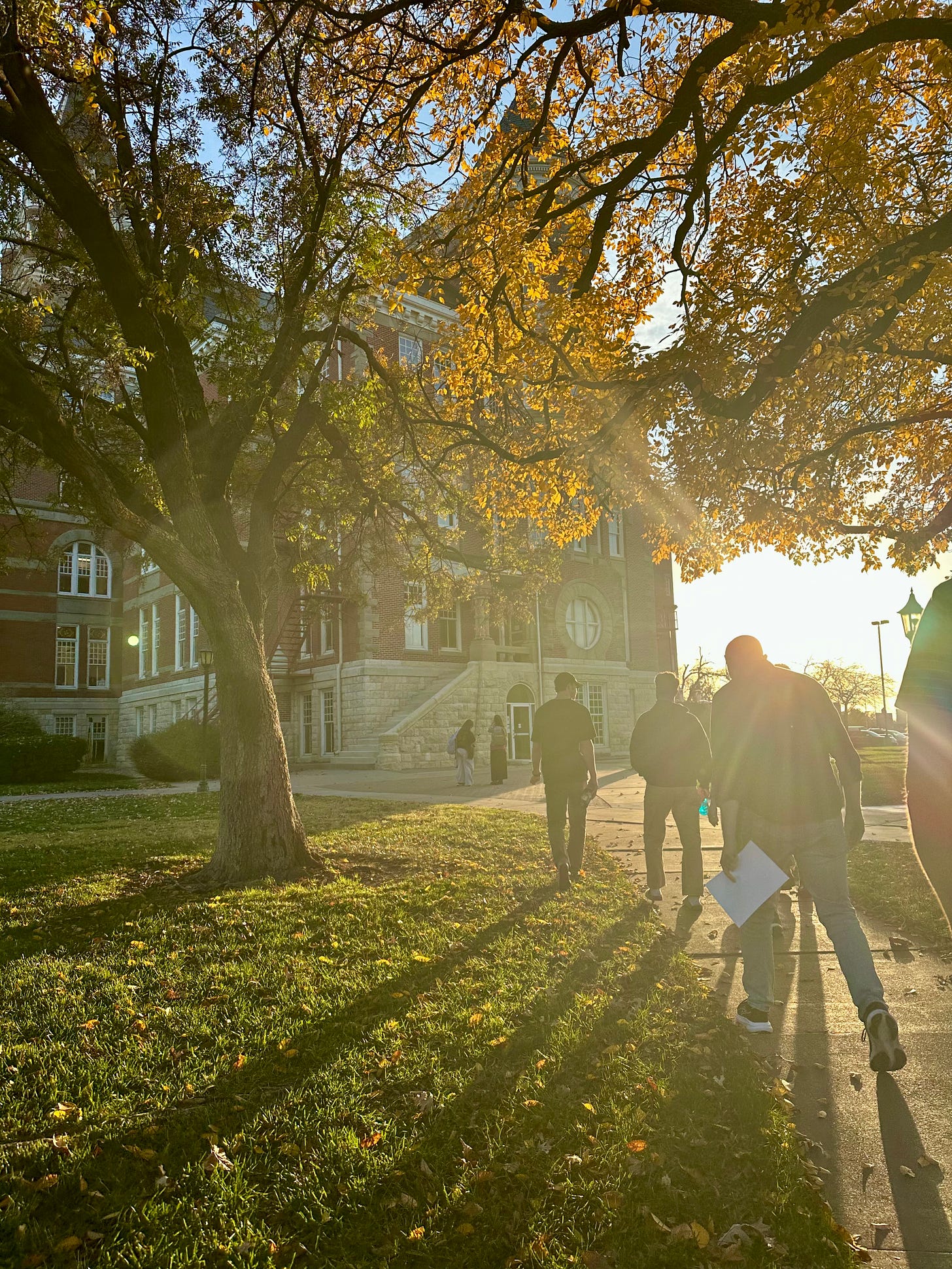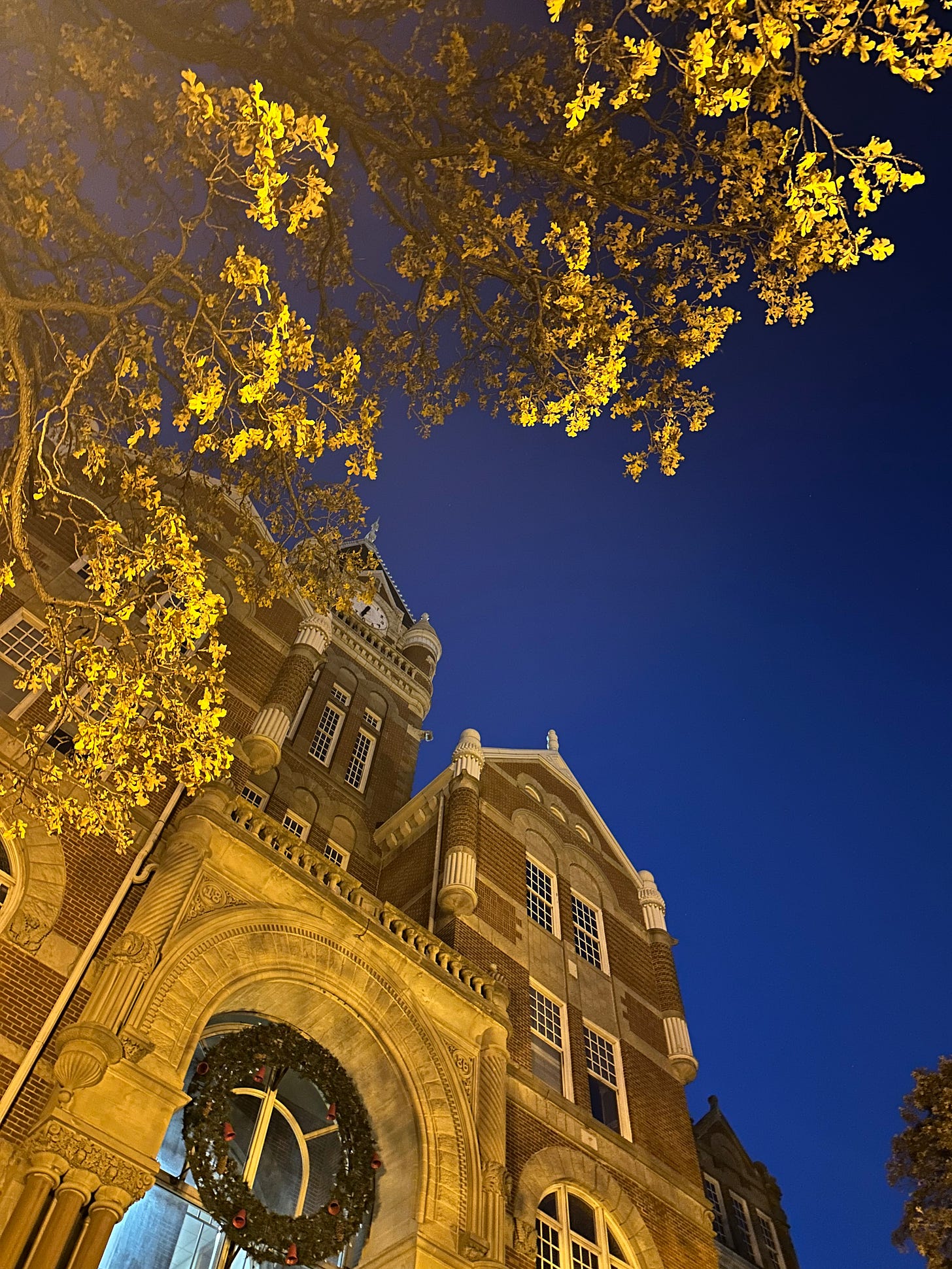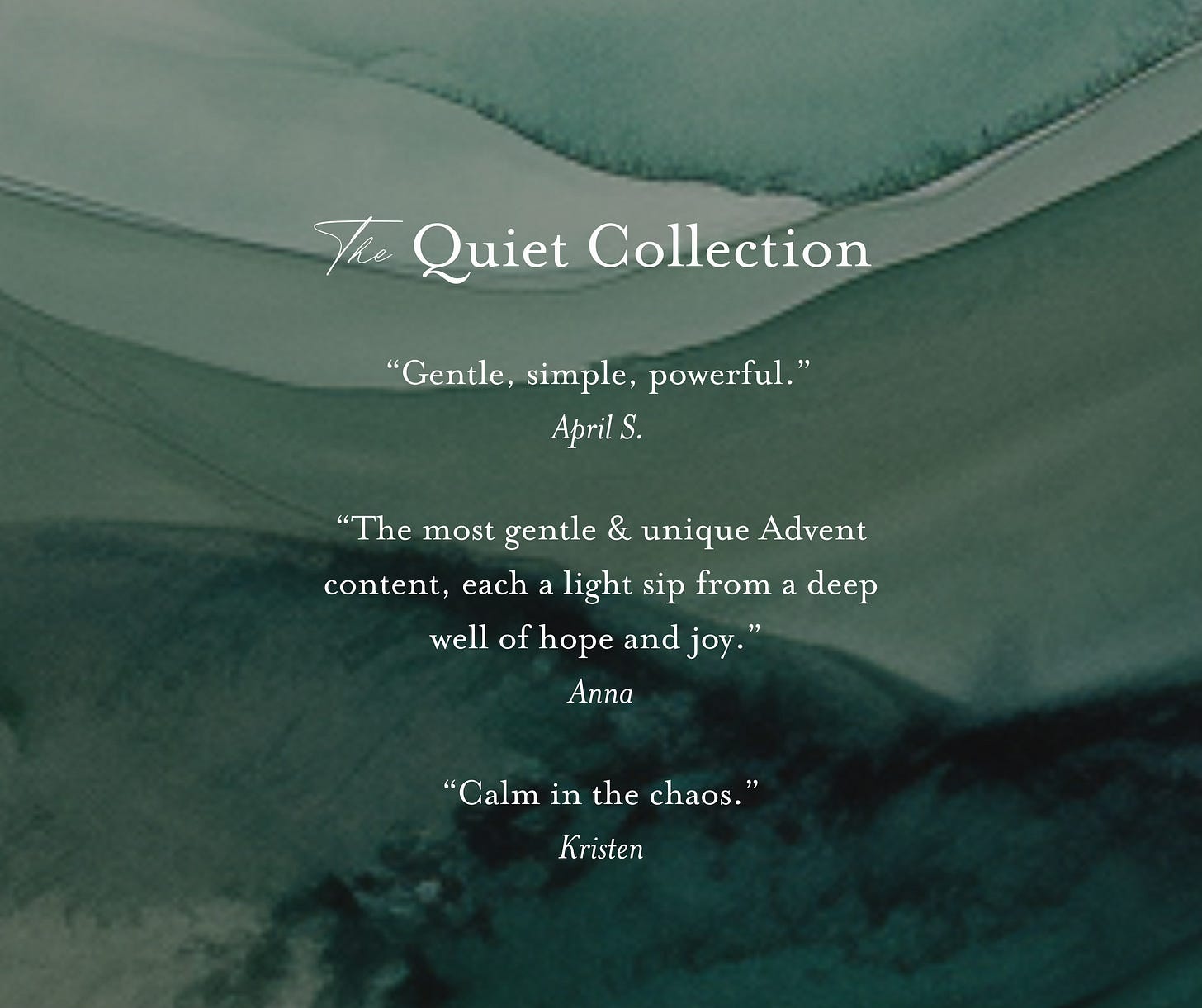Learning How to Not Know
The brilliant practice of being a beginner again
This post is free for everyone. Would you be willing to click the ❤️ like button? Or better yet, share it with your people! Please and thank you.
If you subscribe at the free level but would like to try out the paid subscription, you’ll get instant access to “How to Find + Follow Arrows”, a decision-making video workshop for when you feel stuck.And of course we still offer scholarships to all who ask. Click here for details.
“It is a good idea to forget many of the things you have learned over the years. Some are outmoded, some incorrect, some too obvious and trite.”
—Thomas Moore, The Eloquence of Silence
Twice a year I head to Wichita, Kansas to teach at Friends University in their Masters in Christian Spiritual Formation and Leadership program1. I postpone meetings, batch content with Ashley’s help2, and squeeze my writing work into the weeks before and after in order to clear my schedule so I can be fully present with each new cohort for a full week.
Every year it’s a lot of work to get there. And every year it ends up feeling like a gift to me, a reminder that there are good and beautiful humans in the world who are doing good and beautiful work.
I was among the second class of students to graduate from this program and a year later, I joined the team to teach in the residencies which is where I am now. This week we’re welcoming the tenth cohort which means I’ve been here, either as a student or a lecturer, for eight of them.
Half-way through the week, I often hear the same things from students: How are we supposed to retain everything we’re learning?
I empathize with this statement and remember feeling it, too. The in-person residencies count as a full 8-week course (including the readings and the papers before and after). All the lectures and experiential in-person learning happens now, in a matter of five days.
But school isn’t the only time I’ve experienced this overwhelming feeling, that tiny panic that settles in my chest when I realize I am facing something bigger than my capacity to contain, hold, remember, or know.
The day I found out I was carrying two babies instead of just one: How am I supposed to take care of a tiny human when I still feel like a kid myself, much less TWO tiny humans?
The day after I signed my first book contract: How did I convince an actual publisher that I can write a book when I’ve never written a book before? (I feel this way before writing every book, by the way.)
The day fourteen years ago when I had to tell John that the spot they found on his dad’s scans was, in fact, cancer: How will we ever get through this?
Now those two tiny humans are twenty-one years old and I’ve convinced a publisher seven times that I can, in fact, write a book. And while those eleven months from my father-in-law’s diagnosis until his death remain some of the most difficult of our lives, we walked through them and we did not perish, give up, or lose hope.
In all of these and in so many moments now, I had to be the thing I did not want to be and hardly ever choose.
I had to be a beginner. This was not ideal.
“God can cope perfectly fine with you telling the truth.”
—Padraig O’Tuama
What is the truth?
I cannot possibly learn, understand, or figure out everything I wish to. I cannot always control, tame, or solve the problems that plague me. I do not always know what to do, what to say, or the best direction to move.
Learning, knowing, or remembering it all seems like the goal. In my experience, unlearning can be much more valuable.
I’m unlearning this idea that I need to try to show up as I think I should be rather than how I actually am. I’m unlearning the belief that an offering only counts if it is skilled, polished, or complete. I’m unlearning the rules of the system we all operate in every day: control, competition, hierarchy, domination.
As a beginner, we get to offer whatever small amount we have to God and trust it will be enough. This includes our questions, our exhaustion, and our tempers. As a beginner, we exercise courage when we know what we need to do and compassion when we don’t. The goal is not to do everything but to do one next right thing today and then again tomorrow.
In what ways have you been avoiding being a beginner again?
As always, I’m glad you’re here.
epf
A brand new Advent Collection is coming to The Quiet Collection app next week! Download or update the app for free on your iOS or Android device to be sure you have the latest version.
The Master of Arts in Christian Spiritual Formation and Leadership (MACSFL) is designed as a personal growth, academic and professional program for both lay people and people in professional ministry. Through a hybrid design (part online, part in-person) students receive the tools and resources for developing a framework for spiritual formation, while building a stronger theological foundation. I teach during two of the four in-person residencies.
Ashley Sherlock helps to manage my social media and podcast content for me and I don’t want to ever do this work without her please and thank you.






Reading this post is extraordinarily timely for me. Just a few minutes ago, I was laying on the floor picturing myself at the feet of Jesus asking for his help. I'm 60 and didn't expect to feel like a beginner in just about every aspect of my life right now. I didn't receive any fully satisfactory answers (yet) but I do have His presence.
The older I get, the more like a beginner I feel. And that has become a healthy place for me to operate from. Realizing how little we do know opens us up to listen well, connect deeply, and grow in a compassionate kind of wisdom. I love that.